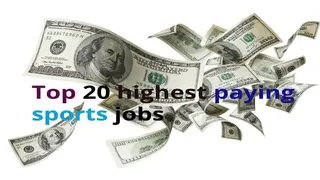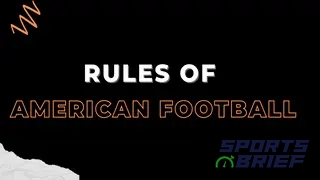Top 20 highest paying sports jobs in the world right now
Other Sports
Whether college athletes should be paid or not has been a hot topic for decades. College games have always raked in enormous profits for the respective schools, and the prominent bone of contention is how those revenues are split. Today, we look at the pros and cons of paying college athletes and whether or not that is the right course of action.

Many colleges recruit talented sportspeople on the promise of scholarships. Due to the vast sports culture in USA and Canada, college sports attract huge fanbases. According to a 2021 report, college fans are the majority when it comes to sports fans in North America. This leads schools to make serious revenues from their sports programs. In 2017, the NCAA reported $1 billion in revenue.
Since the NCAA's inception in 1906, the primary rule of the organisation was that college players would be considered amateur athletes. This meant that they would not be paid a wage but instead be compensated through means of academic scholarships. This, understandably, was never popular amongst the players who watched schools make millions in revenue from sporting events without them ever having a slice of the pie. All of this changed in 2021 in a US Supreme Court ruling that said that athletes are entitled to compensation for anything that referenced their names, images, and likeness.
Top 20 highest paying sports jobs in the world right now
Other Sports
Most professional athletes have a bigger national or global appeal, and they are paid commensurate to the value they bring to their respective teams. This is similar for college students but at a lower, more regional scale. This is why it is practically impossible for all college athletes to earn salaries similar to those of professionals.

The case that led to students getting compensation was NCAA vs Alston which went all the way to the Supreme Court. The ruling led to students being able to sign endorsement deals from their social media profiles or through their brands. Students are also allowed to enter into professional contracts with agents or school boosters. However, schools are still disallowed from enacting pay-for-play policies.
Some of the reasons college athletes should be paid include:
Rules of American football: Understanding the rules and requirements of NFL
NFL
Historically, the only motivating factor for players to join specific colleges has been scholarships. Now players will join programs that place them in a better position to earn from their brands and endorsements.
Despite players receiving training facilities and health insurance, players who get serious injuries while in college are sometimes left penniless. Now that players can earn, this gives them a soft cushion.
Many players fail to be drafted, and some of them do not get opportunities to further their careers. If they are able to earn while still in school, this enhances their chances.
The disadvantages of paying college players include the following:
Most talented athletes are on full scholarships worth hundreds of thousands of dollars in their respective university programs. Some feel that paying them cash is paying them twice.
NFL waterboy application: How to become a waterboy in the NFL
NFL
The main thing that distinguishes students from professional athletes is being paid. Eliminating that makes everything amorphous.
The primary reason people go to school is to gain an education. Making it about payment can lead to a loss of perspective or interest towards learning.
The debate on the pros and cons of paying college athletes will no doubt rage on as many people support both opinions. For now, followers of the college sports scene can only watch and wait as the changes are implemented in time.
READ MORE: Why do athletes take ice baths? Understanding the benefits of ice baths to athletes
Sports Brief recently denoted the benefits of an ice bath. Studies have shown cold immersion to have a relaxing effect on the recovery of sportspeople after strenuous physical activity. Click on the link above to find out more!